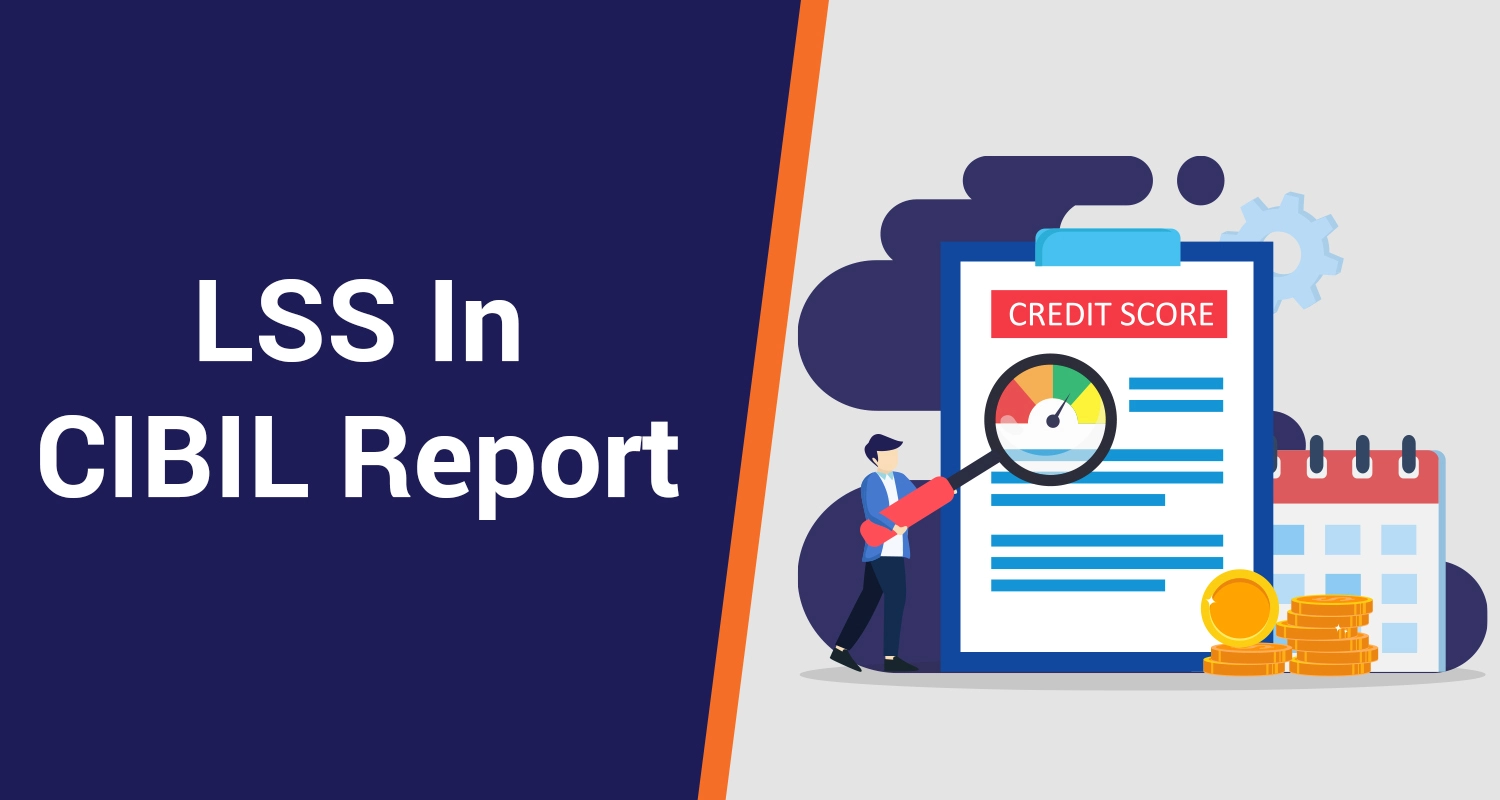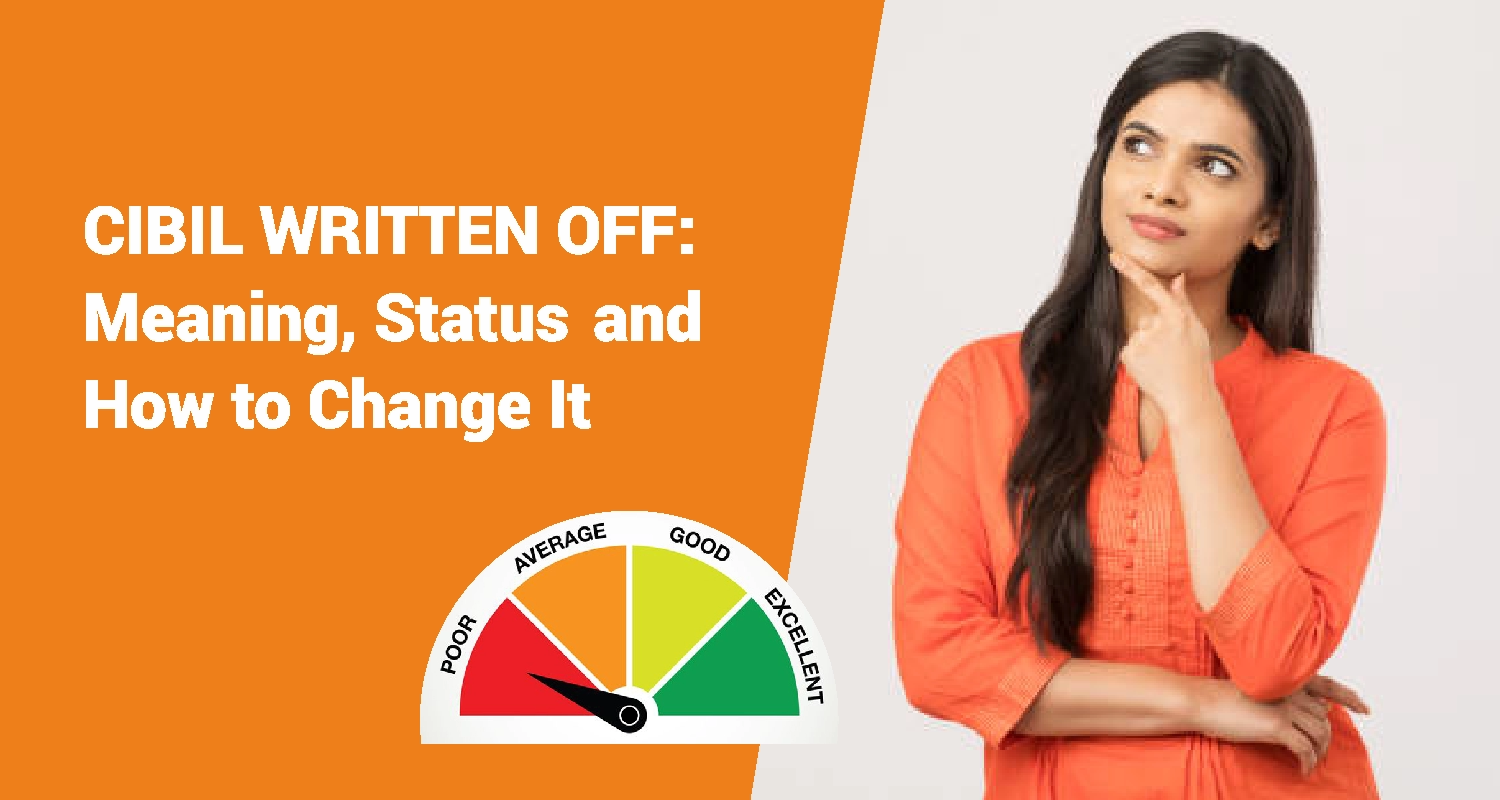What is LSS in CIBIL Report

Whether it is business or personal expenses, most of us need a loan at some point. The process of granting these loans involves a thorough background check, including a glance through the credit score and the credit report. A credit report reveals your borrowing and repayment history, which is crucial for lenders to gauge your creditworthiness. One notable detail in this report is the LSS (Lender Settled Status). Settling debts might seem helpful, but an LSS remark affects your credit score and future borrowing. This article explains the nuances of the CIBIL report, LSS in CIBIL report, its importance, and how to manage finances post-LSS.
What is a CIBIL report?
Credit Information Companies (CICs) are independent agencies that gather financial data on your loans and credit cards to create credit reports. These reports detail credit history and other lender-reported data, assisting potential lenders in evaluating creditworthiness and loan terms for each borrower. CICs share this data primarily with the banks and financial institutions.
In India, four major CICs operate: Experian India, CRIF High Mark Credit Information Services, TransUnion CIBIL Ltd (CIBIL), and Equifax Credit Information Services Pvt Ltd (Equifax). The credit report provided by CIBIL is known as a CIBIL report.
Components of CIBIL report:
1. CIBIL ScoreYour CIBIL score, created by TransUnion CIBIL Ltd (CIBIL), is a three-digit number ranging from 300 to 900. It helps lenders decide if they'll give you a loan and, if yes, at what interest rate. CIBIL doesn't have strict rules, but a credit score higher than 765 usually puts you in the green zone, indicating you're a reliable borrower.
2. NH or NA on Your Report:NH or NA on your report could mean you either have no credit history, have insufficient credit history, or have no credit activity for years.
3. Personal Information:Your name, gender, and birth date are in this section. It also has identity info like PAN, Aadhaar, passport, driver’s license, and voter ID, along with a separate section for your contact details.
4. Work Details:
The section provides information about your job and income from when you applied for a loan.
5. Account Information:This section lists all your credit cards and loans, including lender name, type of credit, account number, ownership, current amount, outstanding balance, and payment history for 36 months. It also shows Days Past Due (DPD). 'XXX' means no payment data; '060' implies payment is 60 days late. Other statuses include:
- STD (Standard): Payments made within ninety days
- SUB (Sub-standard): Payments made after ninety days
- SMA (Special mention account): Indicates an account status is moving from STD to SUB
- DBT (Doubtful): Account stays SUB for 12 months
LSS: Identified but unrecovered loss, later settled after negotiating for a lesser repaid sum.
6. Red Box:It appears above 'Account Details' when there are disputes. It vanishes once disputes are resolved.
7. Enquiries:Records recent lender queries when you apply for credit. It includes the lender's name, application date, loan type, and amount.
Sapna aapka. Business Loan Humara.
Apply NowWhat is LSS in CIBIL Report?
LSS on a CIBIL report means "Lender Settled Status." It indicates that the borrower has settled a credit account with the lender for a reduced amount through negotiations. So, if you can’t repay the entire loan amount, you can negotiate with the lender to pay a lesser sum to close the account. Reasons for this could include financial difficulties or disputes with the lender.
How does LSS impact my CIBIL report?
Dealing with LSS can significantly affect your financial future. But sometimes, they're the lifeline you need. LSS is often favored by borrowers facing unexpected challenges like job loss, medical issues, or natural disasters that lead to financial strain. Although settling a debt settling would be better, opting for LSS can be the most practical option in such cases.
However, not all LSS situations are the same. A well-negotiated settlement can help reduce your outstanding amount and safeguard your credit score to some extent. You can also discuss potential solutions with your lender, such as obtaining a letter of explanation detailing the circumstances surrounding the settlement. This letter can accompany your CIBIL report to provide context for future lenders.
Why is LSS important to consider?
Settling loans and getting an LSS mark can harm your ability to borrow later. Understanding this involves two key points:
- Credit Score Impact:
Loan settlement reflects negatively on your credit report, indicating a failure to fulfill financial obligations and worrying lenders. The impact on your score depends on the settled amount, settlement duration, and credit history. Nonetheless, an LSS notation can significantly lower your score, complicating loan approval and terms regardless of other factors.
- Long-Term Consequences:
Furthermore, an LSS remark persists on your credit report for seven years, continuously affecting your creditworthiness and potentially limiting financial opportunities during this period.
So, can I do something to mitigate the impact of LSS on the credit report? Absolutely. There are a few measures you can take to do so.
Factors to consider after getting the LSS remark:
- Access your detailed CIBIL report to understand the specifics of the LSS remark, including the settled amount, date, and lender.
- Carefully review your settlement agreement to ensure you understand its terms and that they favor you. Confirm that you're comfortable with the repayment schedule.
- Maintain a favourable credit profile by making timely payments on all your other credit accounts. Responsible borrowing behavior can offset the negative impact of LSS in CIBIL.
- Reduce your overall debt by focusing on paying down existing debts. This will improve your debt-to-income ratio, which is critical for your credit score.
- Be patient. After seven years, the LSS in CIBIL score will automatically disappear from your CIBIL report, restoring your creditworthiness to lenders.
It's important to communicate openly with your lender about your financial situation. This can demonstrate your repayment capacity and sometimes lead to reduced interest rates. Practicing good financial habits helps lessen the impact of an LSS notice and sets the stage for a stable financial future.
Conclusion:
Understanding your credit scores, such as the components like STD, DPD, and LSS in CIBIL reports, is important for managing your financial profile well. While an LSS remark could delay your credit progress, it's not a dead end. Over time, overcoming this shortfall and practicing responsible financial habits will improve your credit score. Remember, financial health is built on good habits developed over time, not overnight. Therefore, make wise choices and focus on responsible borrowing practices.
FAQs
Q1. What is LSS full form in CIBIL report?Ans. LSS in CIBIL, meaning the Lender Settled Status, indicates that you have settled the debt with the lender after negotiating to close the debt with a lesser amount than the outstanding sum.
Q2. Is the LSS in CIBIL score good or bad for my credit score?Ans. Having the LSS remark can harm your chances of getting loans from banks. Lenders refrain from lending money to individuals who might not repay their debts. If your credit report shows the LSS status, lenders might hesitate to approve your loan applications, making borrowing money more difficult.
Q3. What is the difference between STD, DPD, and LSS in CIBIL report?Ans. Here are the key contrasts among STD, LSS, and DPD in CIBIL:
- STD: This label shows consistent and on-time payments, signaling positive credit conduct.
- LSS: It denotes an agreement with the lender to settle the debt for a lesser amount, potentially impacting creditworthiness negatively.
- DPD: This metric counts the days a payment is late, highlighting delays and delinquency.
Sapna aapka. Business Loan Humara.
Apply NowDisclaimer: The information contained in this post is for general information purposes only. IIFL Finance Limited (including its associates and affiliates) ("the Company") assumes no liability or responsibility for any errors or omissions in the contents of this post and under no circumstances shall the Company be liable for any damage, loss, injury or disappointment etc. suffered by any reader. All information in this post is provided "as is", with no guarantee of completeness, accuracy, timeliness or of the results etc. obtained from the use of this information, and without warranty of any kind, express or implied, including, but not limited to warranties of performance, merchantability and fitness for a particular purpose. Given the changing nature of laws, rules and regulations, there may be delays, omissions or inaccuracies in the information contained in this post. The information on this post is provided with the understanding that the Company is not herein engaged in rendering legal, accounting, tax, or other professional advice and services. As such, it should not be used as a substitute for consultation with professional accounting, tax, legal or other competent advisers. This post may contain views and opinions which are those of the authors and do not necessarily reflect the official policy or position of any other agency or organization. This post may also contain links to external websites that are not provided or maintained by or in any way affiliated with the Company and the Company does not guarantee the accuracy, relevance, timeliness, or completeness of any information on these external websites. Any/ all (Gold/ Personal/ Business) loan product specifications and information that maybe stated in this post are subject to change from time to time, readers are advised to reach out to the Company for current specifications of the said (Gold/ Personal/ Business) loan.



